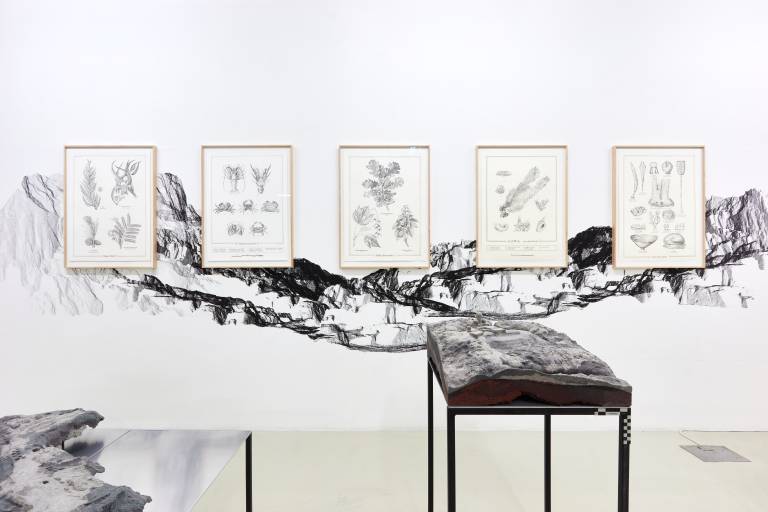SAVA: Epistemologies of the Socialist Anthropocene
14 March 2023, 5:00 pm–7:00 pm

A panel discussion with Jonathan Oldfield (University of Birmingham), Eglė Rindzevičiūtė (Kingston University) and artists Anca Benera and Arnold Estefan (SAVA Creative Fellows UCL). Moderated by Maja and Reuben Fowkes (Postsocialist Art Centre UCL).
This event is free.
Event Information
Open to
- All | UCL staff | UCL students
Availability
- Yes
Cost
- Free
Organiser
-
Institute of Advanced Studies
Location
-
IAS ForumG17, Ground Floor, South Wing, Wilkins BuildingUCL, Gower Street, LondonWC1E 6BTUnited Kingdom
This discussion will explore attitudes and approaches to the natural world under socialism, focusing on the divergent histories of Soviet science, the corrosive legacies of nuclear culture and planetary impacts of militarism. It will address the distinctive forms of knowledge production under socialism as manifest in the development of Soviet scientific thought. What was specific about the version of technological progress and development modelled by scientists and planners in socialist states and what were its environmental implications? What was the contribution of Soviet science to the emergent understanding of the Earth as an interconnected ecological system? The panel will also consider the extent to which scientific inquiry in socialist states was shaped by the demands of Cold War competition, the influence of the military-industrial complex and the prospect of nuclear catastrophe.
In his presentation of Jonathan Oldfield (University of Birmingham) will discuss Soviet scientist Vladimir Vernadsky’s understanding of the biosphere and related concept of the noösphere as the sphere of human thought. Eglė Rindzevičiūtė (Kingston University) will consider the ways in which the Soviet nuclear military-industrial complex is materially preserved, critically reassessed and mythologised as cultural heritage. Artists Anca Benera and Arnold Estefan (SAVA Creative Fellows) will present their project on the Debrisphere, a term they coined to denote the layer of the planet that is transformed by military intervention into aquatic and terrestrial landscapes.
Socialist Anthropocene in the Visual Arts (SAVA) sets out to radically transform current critical debates around the Anthropocene, addressing the major lacuna in existing accounts by establishing the Socialist Anthropocene as a conceptual framework that asserts the constitutive role of the environmental histories and potentialities of Socialism in the formation of the new geological age. The project is led by Dr. Maja Fowkes (UCL Institute of Advanced Studies) and funded by UK Research and Innovation (UKRI) under the UK government’s Horizon Europe funding guarantee.
Image: Anca Benera & Arnold Estefan, Debrisphere, Landscape as an extension of the military imagination, 2017 - ongoing, mixed-media installation (works on paper, scale models), variable dimensions, © photo David Biro.
About the Speakers
SAVA Creative Fellows Anca Benera and Arnold Estefan are artists based in Bucharest and Vienna and have collaborated since 2012. Their research-driven art practice examines hidden patterns in historical, social, and geopolitical narratives through installation, video, and performance. Their project for the Socialist Anthropocene, "Prospecting S.A.", explores the Romanian-African joint economic ventures and their legacies since the first Romanian trans-African expedition. Their works have been exhibited worldwide, recently including n.b.k Berlin, Tinguely Museum Basel, Migros Museum Zurich, Istanbul Biennial, Palais de Tokyo Paris, and Whitechapel in London, among others.
Jonathan Oldfield is Professor in Russian Environmental Studies and Head of Geography, Earth and Environmental Sciences at the University of Birmingham. His research is primarily focussed on an exploration of Russian understandings of physical natural systems. His current research has three main strands: Soviet climate science and its intellectual legacies, the science of geoengineering in the Soviet /Russian contexts, and Russian engagements with the Anthropocene as an empirical and conceptual entity. His publications include The Soviet Union and Global Environmental Change: Modifying the Biosphere and Conceptualizing Society-Nature Interaction (Routledge, 2021).
Eglė Rindzevičiūtė is an Associate Professor of Criminology and Sociology, the Department of Criminology, Politics and Sociology, Kingston University London, the UK. She is the author of The Power of Systems: How Policy Sciences Opened Up the Cold War World (Cornell University Press, 2016) and The Will to Predict: Orchestrating the Future through Science (Cornell University Press, 2023). Dr Rindzevičiūtė is the Principal Investigator of the research project “Nuclear Spaces: Communities, Locations and Materialities of Nuclear Cultural Heritage (NuSPACES)” (2021-2024, funded as part of the European Union’s Joint Programming Initiative for Cultural Heritage).
 Close
Close

